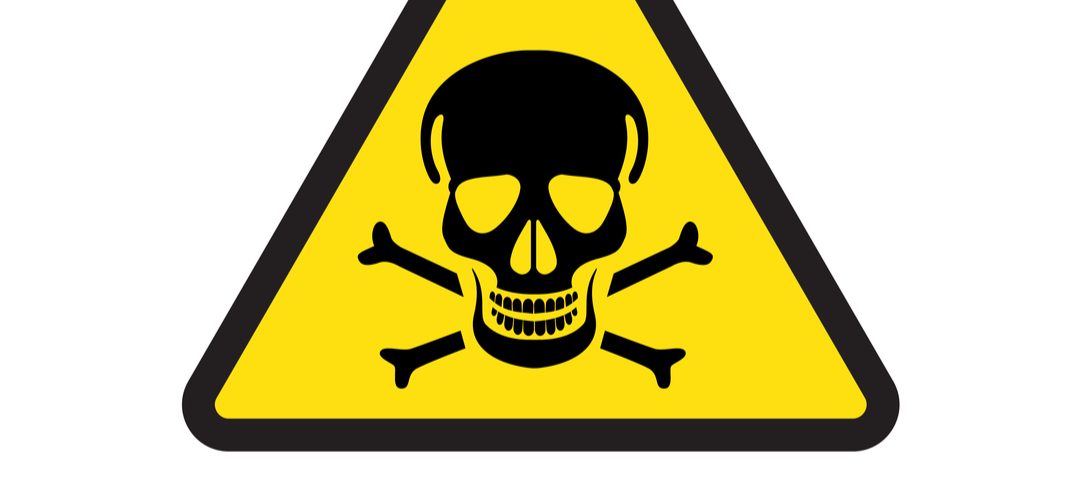Five Environmental Services (EVS) workers from a California hospital filed a lawsuit against their employer for forcing them to use a corrosive cleaner to perform cleaning duties. The lawsuit states that multiple physicians warned the California hospital not force workers to use the corrosive disinfectant.
The California hospital had a high rate of Clostridioides Difficile (C Diff). To reduce C Diff rates, the hospital states it purchased a new product to help reduce the spores of C Diff. One of the EVS workers complained to her supervisor that the new disinfectant caused a severe burning sensation in her eyes and uncontrollable coughing after her initial exposure. A petition was generated that received 140 signatures from workers requesting relief from use of the disinfectant. Other workers complained to the California Division of Occupational Safety and Health and other regulatory agents in an attempt to get assistance. Some employees filed worker’s compensation claims for injuries that they received from the use of the disinfectant.
Data from the National Institute for Occupational Safety & Health states, “Safety should be a major concern for using it (the disinfectant) because it is corrosive to the eyes, the skin, and the respiratory tract. Symptoms from inappropriate exposures can include cough, labored breathing, shortness of breath, and burns to the eyes.”
The EVS worker who initially complained to her supervisor was evaluated by an experienced Yale University trained physician who told the hospital that the employee’s exposure to the disinfectant resulted in reactive airway disease, a condition that occurs when a person’s bronchial tubes overreact to an irritant and swell, making it difficult to breathe air into the lungs.
The hospital assembled a systemwide team of experts who researched the disinfectant and other potential cleansers. This team of experts included environmental services managers or directors, as well as a group known as the Infection Control Counsel that was headed by one of the hospital’s employees, and made up of representatives from the company’s hospitals.
An environmental risk consultant for the hospital acknowledged reviewing literature that concluded that the disinfectant was hazardous, but stated a summary of the literature described the respiratory symptoms as “a tickle in the throat or a little runny nose or watery eyes.”
The lawsuit alleges that the new disinfectant was cheaper than a two-step cleaning process that workers had previously used, which would save the hospital millions of dollars. The lawsuit alleges that the hospital maintained that the disinfectant was safe in communications with the EVS workers, even though they knew it was not. The company allegedly wanted savings achieved from use of the product, but also wanted to eliminate as many C. Diff and other hospital-acquired infections as possible because “Medicare does not cover the cost of treating” hospital-acquired illnesses. “Rather than eliminate the product when confronted with its effects, the hospital wrote off the harm as user error and put the workers through re-training, doubling down on knowingly false claims to all EVS workers that the product was essentially harmless,” according to the lawsuit.
Issue:
As part of your infection control plan, all cleaning products should be evaluated by the Infection Control Preventionist and other knowledgeable consults. It is highly recommended that the supervisor of EVS and EVS workers are part of the team that evaluates cleaning products. All cleaning products should be Environmental Protection Agency (EPA) approved products, and the manufacturer’s recommendations for amount, dilution, and contact time should be followed. When a new product is selected, all EVS staff should be trained on the proper use of the product.
Discussion Points:
- Review your Infection Control Plan, and ensure that it includes a process for evaluating all new cleaning products that includes staff input and feedback. Update your plan as necessary.
- Train all appropriate staff on the use of new cleaning products. Newly hired EVS workers and other appropriate staff should receive training on the use of all cleaning products. Document that these trainings occurred and file the signed document in each employee’s education file.
- Periodically audit staff understanding and performance to ensure that your Infection Control Plan is being followed at all times and that no untoward effects of chemical exposures are being experienced.












































































